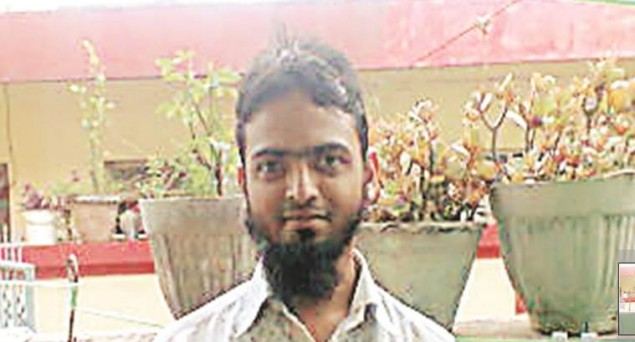Firasha Shaikh | India Tomorrow
PUNE, AUGUST 7—Many political commentators are of the opinion that lynching related to cow-vigilantism is by no means a new phenomenon. While it is true that the rise of social media has brought the incidents of lynching into the limelight, it also remains a fact that the hateful rhetoric from those holding political positions has emboldened the cow vigilantes to carry out lynching in broad daylight. As if this was not bad enough, the justice system has consistently failed the victims and their kith and kin.
One such sombre example is the case of Mohsin Shaikh. In June 2014, barely a month after the BJP-led NDA government came to power at the Centre, Mohsin Shaikh, a 24-year-old youth in Pune, returning home from prayers, was attacked and lynched to death allegedly by right-wing goons amidst communal tensions in the area. In the ensuing investigation, 21 members of the Hindu Rashtra Sena, a right-wing group, including its chief Dhananjay Desai, were arrested.
In October 2014, the public prosecutor Ujjwal Nikam recused himself from the case. His decision came as a shock to the victim’s family members who were seeking justice.
The Bombay High Court denied bail to Desai in 2015. However, the High Court in its 2017 judgement in the case, granted bail to three of the accused saying: “The fault of the deceased was only that he belonged to another religion. I consider this factor in favour of the applicants/ accused. Moreover, the applicants/accused do not have criminal record and it appears that in the name of the religion, they were provoked and have committed the murder.”
By wording it in this way, it appeared as though the High Court departed from its previous judgement in the case where it denied bail to Desai in 2015 on the grounds of hate speech but in 2017 it granted bail to three of the accused arguing that they were “provoked” due to “religion”, thus overlooking the fact that they were accused of bludgeoning an individual to death and were part of an organization that routinely spreads hateful rhetoric. Desai was eventually granted bail in 2019.
In 2018, the Bombay High Court rebuked the Pune police for being ‘onlookers’ in the Mohsin Shaikh murder case and not making any effort to arrest the assailants.
The victim’s father, Sadique Shaikh, died in December 2018 due to heart attack. Ever since his son’s murder, he had been fighting a solitary battle to secure justice and bearing all the expenses of the legal battle himself. He was forced to take ayurvedic treatment in his last days as he could not afford allopathic treatment. The Rs.10 lakh compensation announced by the state government took years to reach the family, after repeated enquiries and citing of technical difficulties by the state government. The victim’s brother, Mubin, now the only breadwinner for his family, was promised a government job as part of the compensation but he is still struggling for employment.
As for the case, the chargesheet has been filed by the Pune police but charges are yet to be framed and trial is yet to begin.
There are some other infamous instances among hundreds of others, which portray the abject failure of the justice system. In the 2017 lynching case of a 17-year old boy Hafiz Junaid in a running train between Ballabhgarh and Mathura, all the accused secured bail from the court.
In the Ramgarh lynching case of Alimuddin Ansari, the eight accused were garlanded by the Union Minister Jayant Sinha who had been released after the Jharkhand High Court granted them bail. A fast-track court had earlier in March 2018 had sentenced all the 11 accused to life term. He was lynched on the suspicion that he was carrying beef (cow meat).
All the six accused involved in mob lynching of a dairy farmer Pehlu Khan in Alwar town of Rajasthan in April 2017 were acquitted bail by a court in Rajasthan.
The problematic attitude of judiciary, negligence by police authorities, dismissive approach of state government and lack of support by civil society and social organizations to victim’s family, are all increasingly becoming part of problem when it comes to justice for the victims of lynching cases.
Civil society and political parties must make the anti-mob lynching law a priority and should ensure its contents guarantee maximum protection and rights to the victims and accountability of police authorities. The urgent need of the hour is an overarching appraisal and transformation of the justice system as a whole. But even more urgent perhaps, is to address the deep-seated hatred that has firmly entrenched itself within certain sections which allows such brazen acts of impunity to happen in the first place.
(Firasha Shaikh is an intern with India Tomorrow)





